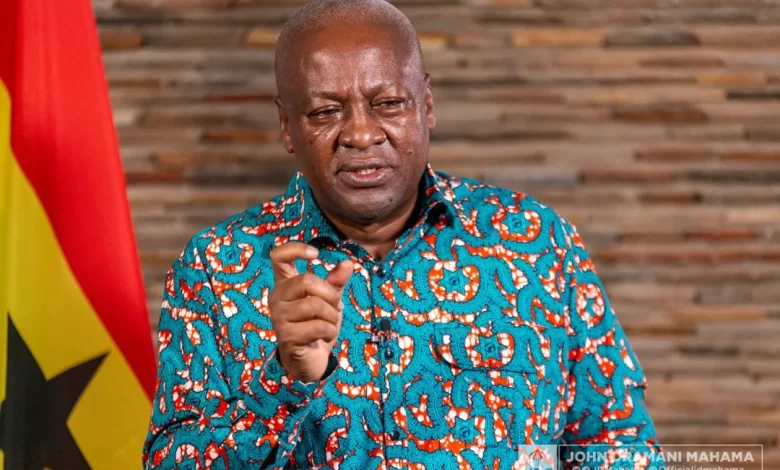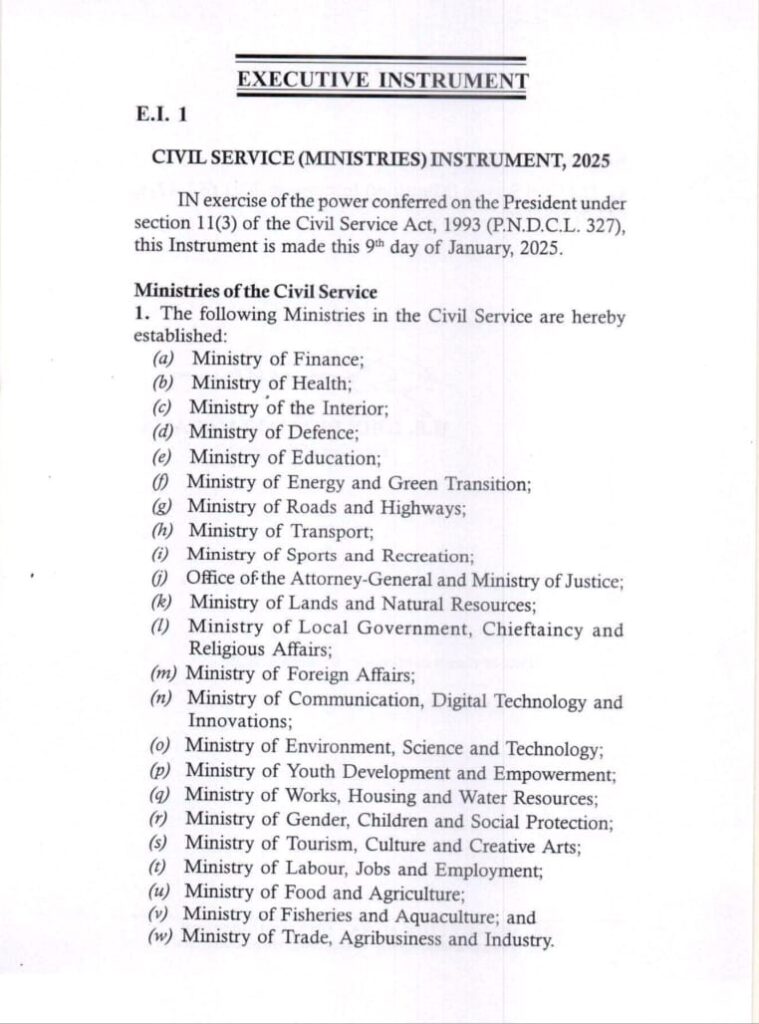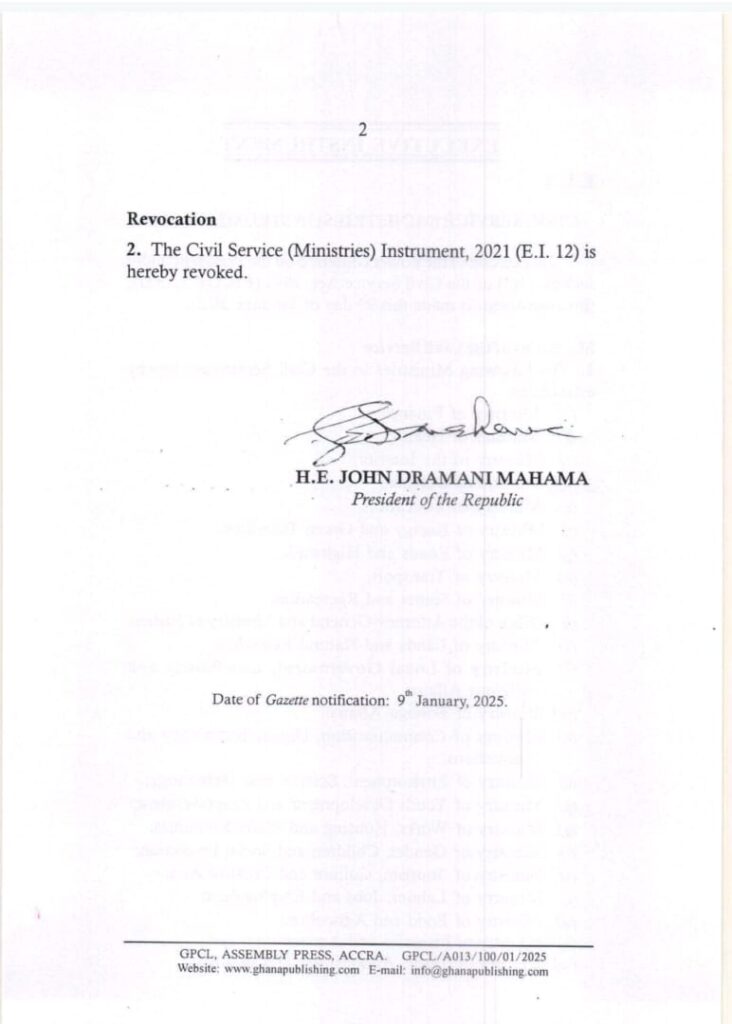
In a bold move aimed at promoting efficiency and streamlining governance, President John Dramani Mahama has announced a significant reduction in the number of ministries in Ghana’s government.
Through an Executive Instrument, the number of ministries has been trimmed from 30 to 23, a decision the President believes will enhance the delivery of public services and reduce administrative overhead.
The announcement was made in a formal letter signed by His Excellency John Dramani Mahama, citing the authority vested in him under Section 11(3) of the Civil Service Act, 1993 (P.N.D.C.L. 327).
The Executive Instrument, dated January 9, 2025, officially establishes the restructured set of ministries to align with the government’s priorities and modern development goals.
The newly established ministries are as follows:
- Ministry of Finance – Overseeing national fiscal policies and economic planning.
- Ministry of Health – Managing healthcare delivery and public health initiatives.
- Ministry of the Interior – Ensuring internal security and public safety.
- Ministry of Defence – Responsible for national defense and military affairs.
- Ministry of Education – Spearheading educational policies and reforms.
- Ministry of Energy and Green Transition – Focusing on sustainable energy solutions and climate change initiatives.
- Ministry of Roads and Highways – Overseeing road infrastructure development and maintenance.
- Ministry of Transport – Managing transportation systems and policies.
- Ministry of Sports and Recreation – Promoting sports, recreation, and youth engagement.
- Office of the Attorney-General and Ministry of Justice – Handling legal affairs and ensuring justice delivery.
- Ministry of Lands and Natural Resources – Administering land use, forestry, and mining activities.
- Ministry of Local Government, Chieftaincy, and Religious Affairs – Supporting local governance and traditional institutions.
- Ministry of Foreign Affairs – Managing international relations and diplomacy.
- Ministry of Communication, Digital Technology, and Innovations – Driving technological advancement and digital transformation.
- Ministry of Environment, Science, and Technology – Advancing scientific research and environmental conservation.
- Ministry of Youth Development and Empowerment – Focusing on youth programs and opportunities.
- Ministry of Works, Housing, and Water Resources – Addressing housing development and water resource management.
- Ministry of Gender, Children, and Social Protection – Championing social equity and welfare programs.
- Ministry of Tourism, Culture, and Creative Arts – Promoting tourism and preserving cultural heritage.
- Ministry of Labour, Jobs, and Employment – Addressing labor issues and job creation.
- Ministry of Food and Agriculture – Ensuring food security and agricultural development.
- Ministry of Fisheries and Aquaculture – Managing fisheries and aquaculture industries.
- Ministry of Trade, Agribusiness, and Industry – Boosting industrial growth and trade.
The President’s directive also revokes the previous Civil Service (Ministries) Instrument to accommodate the newly restructured framework.
This decisive action marks a significant step toward a more efficient and modern civil service, ensuring that Ghana remains adaptive and competitive in a rapidly changing global landscape.


Story by: Emmanuel Romeo Tetteh (#RomeoWrites





